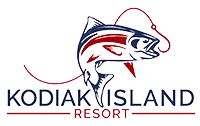Embarking on a fishing charter in Kodiak, Alaska, promises an unforgettable adventure amidst breathtaking natural beauty and abundant marine life. However, to ensure a successful and enjoyable experience for yourself and your fellow anglers, it’s essential to adhere to proper fishing etiquette. Here are the do’s and don’ts to keep in mind when chartering a fishing trip in Kodiak.
The Do’s And Don’ts Of Having A Fish Charter In Kodiak, Alaska
Do: Arrive Early and Prepared
Arriving early for your fishing charter sets a positive tone for the day and allows ample time for preparations. Come equipped with appropriate clothing, sunscreen, and any necessary personal items. Being punctual and ready ensures a smooth start to your fishing adventure.
Don’t: Be Late or Unprepared
Arriving late can disrupt the schedule for everyone onboard and may result in missed opportunities for fishing. Avoid scrambling to gather gear or supplies at the last minute. Being late or unprepared can detract from the overall experience and may inconvenience your fellow anglers.
Do: Respect Shared Space
On a fishing charter, space is limited, and courtesy is key. Keep your fishing gear organized and stowed away when not in use. Be mindful of others’ personal space and avoid spreading out excessively. Respecting shared areas creates a harmonious environment for everyone onboard.
Don’t: Hog Space or Equipment
Avoid monopolizing shared spaces or equipment on the boat. Refrain from sprawling out with your gear or obstructing pathways. Being considerate of others ensures that everyone has equal access to amenities and contributes to a pleasant fishing experience for all.
Do: Communicate Openly
Maintain open lines of communication with your captain and fellow anglers throughout the trip. Voice any concerns or questions you may have, whether related to safety, fishing techniques, or personal comfort. Clear communication fosters a cooperative and enjoyable atmosphere onboard.
Don’t: Keep Concerns to Yourself
Failing to communicate concerns or discomforts can lead to misunderstandings or missed opportunities to address issues. Whether it’s seasickness, equipment malfunctions, or discomfort with fishing techniques, don’t hesitate to speak up. Your captain and fellow anglers are there to help and support you.
Do: Practice Mindful Fishing
When casting your line, be mindful of your surroundings and fellow anglers. Consider factors such as wind direction, boat movement, and proximity to others before casting. Practicing spatial awareness minimizes the risk of tangling lines or hooking other anglers, ensuring a safe and enjoyable fishing experience for everyone.
Don’t: Cast Carelessly or Recklessly
Avoid casting without regard for your surroundings or fellow anglers. Careless casting can result in tangled lines, lost bait, or even injury to yourself or others. Take your time to assess the situation before casting and ensure that you have a clear and safe area to fish.
Do: Handle Your Catch with Care
Treat every catch with respect and handle them with care, whether you plan to release them or keep them. Minimize the time fish spend out of the water and use proper techniques for handling and releasing them. Respecting your catch demonstrates good sportsmanship and conservation ethics.
Don’t: Mistreat or Mishandle Your Catch
Avoid mishandling or mistreating your catch, as this can cause unnecessary harm or stress to the fish. Improper handling techniques can lead to injury or mortality, compromising the sustainability of fish populations. Take care to handle your catch gently and responsibly.
Do: Leave No Trace
Maintain cleanliness and tidiness throughout the fishing trip, disposing of waste properly and keeping the boat clean. Avoid littering or discarding anything overboard, and respect the natural environment. Leaving no trace ensures that future generations can enjoy the same pristine fishing grounds.
Don’t: Leave a Mess or Litter
Leaving behind a mess or littering detracts from the overall experience and harms the marine environment. Take responsibility for your waste and dispose of it appropriately. Leaving the boat clean and tidy shows respect for the crew, fellow anglers, and the natural surroundings.
Do: Show Appreciation to the Crew
Acknowledge the hard work and expertise of the crew by tipping generously at the end of the trip. A customary tip is usually 15-20% of the charter cost and is a tangible way to express gratitude for a memorable fishing experience. Showing appreciation fosters positive relationships and encourages exceptional service.
Don’t: Forget to Thank the Crew
Failing to acknowledge the efforts of the crew can be perceived as disrespectful or ungrateful. Take the time to thank the crew for their assistance, guidance, and hospitality throughout the trip. Your appreciation goes a long way in fostering a positive and respectful atmosphere onboard.
How To Catch Alaskan Salmon
To embark on your salmon fishing adventure in Kodiak Island, it’s essential to equip yourself with the right gear and techniques. From fly fishing in the tranquil rivers to trolling in the open waters, there are various methods to hook the prized salmon species that inhabit these pristine waters. Whether you’re casting from the shoreline or venturing out into the deep sea, our experienced guides at Kodiak Island Resort will provide you with the expertise and assistance needed to reel in your dream catch.
